On March 30-31, 2024, CCSL successfully held the "Language Cognition Science Research and Application (Phase II): Workshop on Near-Infrared Spectroscopy Brain Functional Imaging Technology (fNIRS)." This workshop attracted nearly 20 participants from 11 domestic and international universities and research institutions. Five renowned experts and scholars in the field of fNIRS were invited to lecture on the basic principles and applications of fNIRS, as well as the latest research achievements in the field of language cognition science, while also providing an in-depth introduction to data collection and analysis techniques.

Professor Wang Jianqin, the director of CCSL, delivered a speech at the opening ceremony. He warmly welcomed the participants to Beijing Language and Culture University for the workshop and thanked them for their trust and strong support. Professor Wang emphasized that compared to other brain imaging techniques, fNIRS equipment is more portable and suitable for studying language cognition processes in real-world settings. The participants of this fNIRS workshop mainly come from different research fields such as international Chinese education, foreign language teaching, linguistics, psychology, journalism and communication, and economic management. The purpose of this workshop is to provide technical support for cross-disciplinary academic research in different fields. The Introduction Base and the Key Laboratory of Language Cognition Science of the Ministry of Education will open their experimental equipment to participants for follow-up research and provide technical services. Professor Wang hopes that participants will gain a lot from this fNIRS technical training and return home with fruitful results.
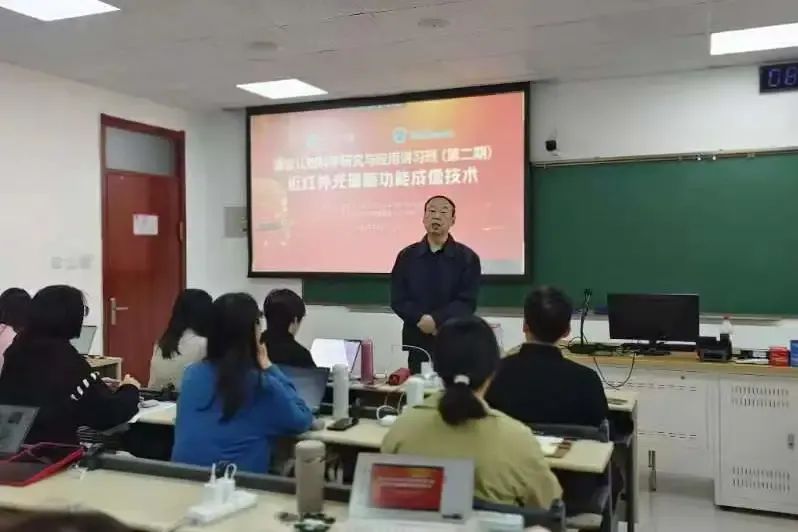
The technical training on March 30th included four keynote speakers and was divided into five main sections.
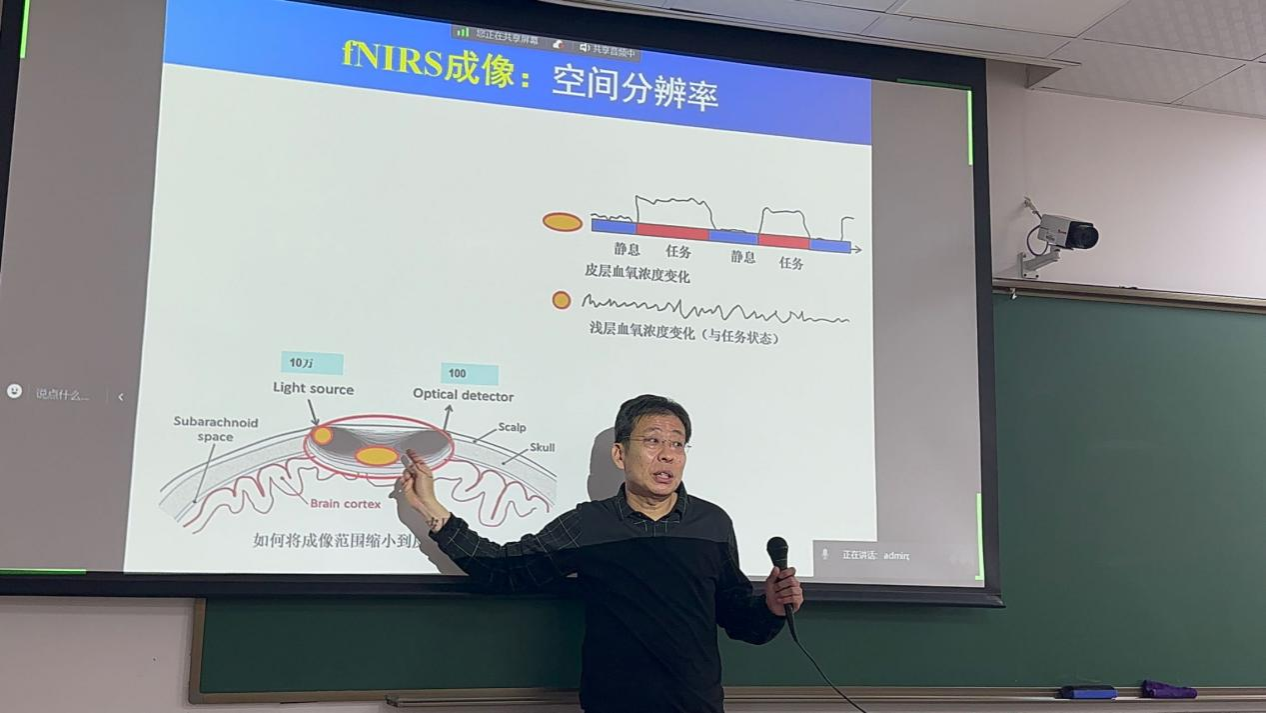
Professor Zhu Chaozhe, from the State Key Laboratory of Cognitive Neuroscience and Learning at Beijing Normal University, delivered a lecture on "Introduction to fNIRS Technology and Imaging Principles." Professor Zhu first introduced the development overview of fNIRS to the participants and compared its advantages and limitations with other brain functional imaging techniques. Then, Professor Zhu elaborated on a series of issues related to the imaging principles of fNIRS, drawing on his rich research and technical development experience in the field. Addressing the common concern of shallow noise, Professor Zhu provided key explanations and used analogies from daily life to vividly answer the questions raised by the participants.

Professor Lu Chunming, also from the State Key Laboratory of Cognitive Neuroscience and Learning at Beijing Normal University, spoke on "Frontier Applications of fNIRS." He explained the application of wearable fNIRS measurement technology in group neuroscience research. Professor Lu presented educational neuroscience research cases with a strong sense of life, demonstrating the broad application prospects of fNIRS in interpersonal interaction experimental paradigms. Especially for the topic of fNIRS technology and parent-child interaction research, the participants showed strong research interest. Finally, Professor Lu provided a prospect for the application of fNIRS technology in the field of interpersonal interaction, aiming to inspire participants to reflect on their future research.
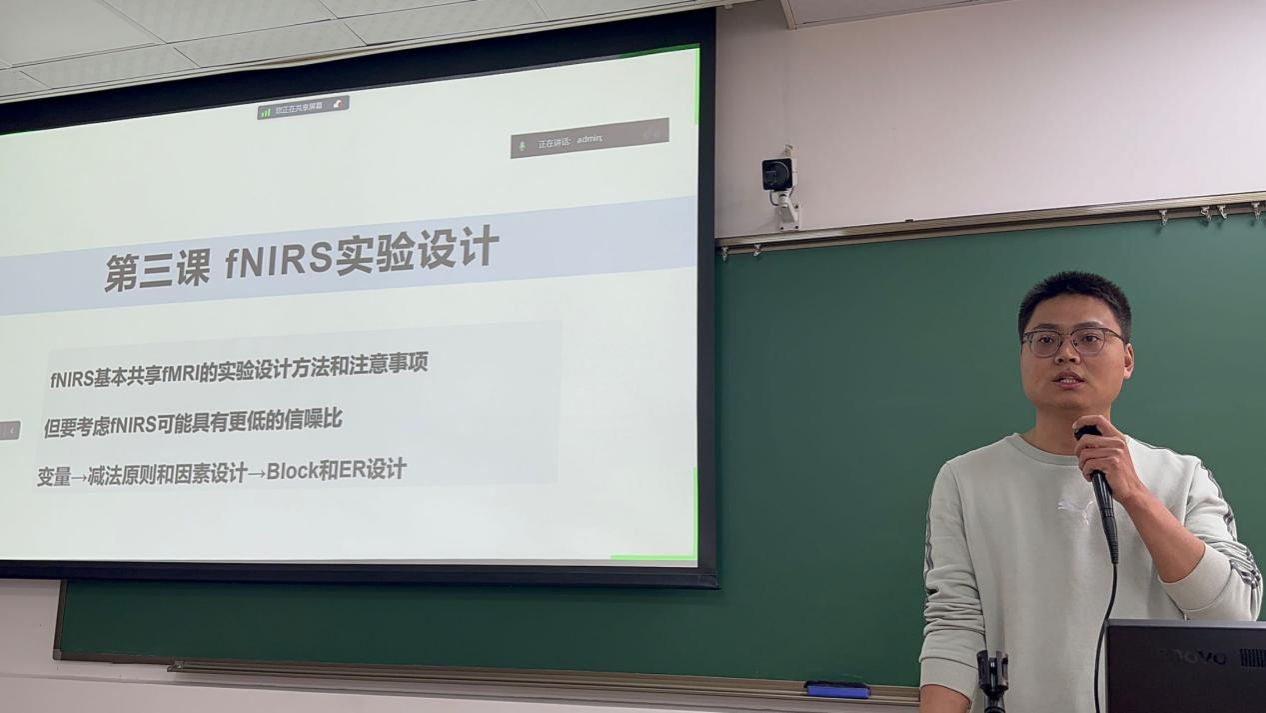
Dr. He Tao, a full-time researcher at CCSL, lectured on "fNIRS Experimental Design." Starting from the perspective of experimental design, Dr. He focused on the characteristics and other considerations of blood oxygen signals as dependent variables in fNIRS research. Subsequently, Dr. He shared his experience and techniques in identifying confounding variables and addressing issues with conditional comparisons. He also introduced the application scenarios and advantages and disadvantages of Block design and Slow ER design in fNIRS research, and answered questions raised by the participants in detail.
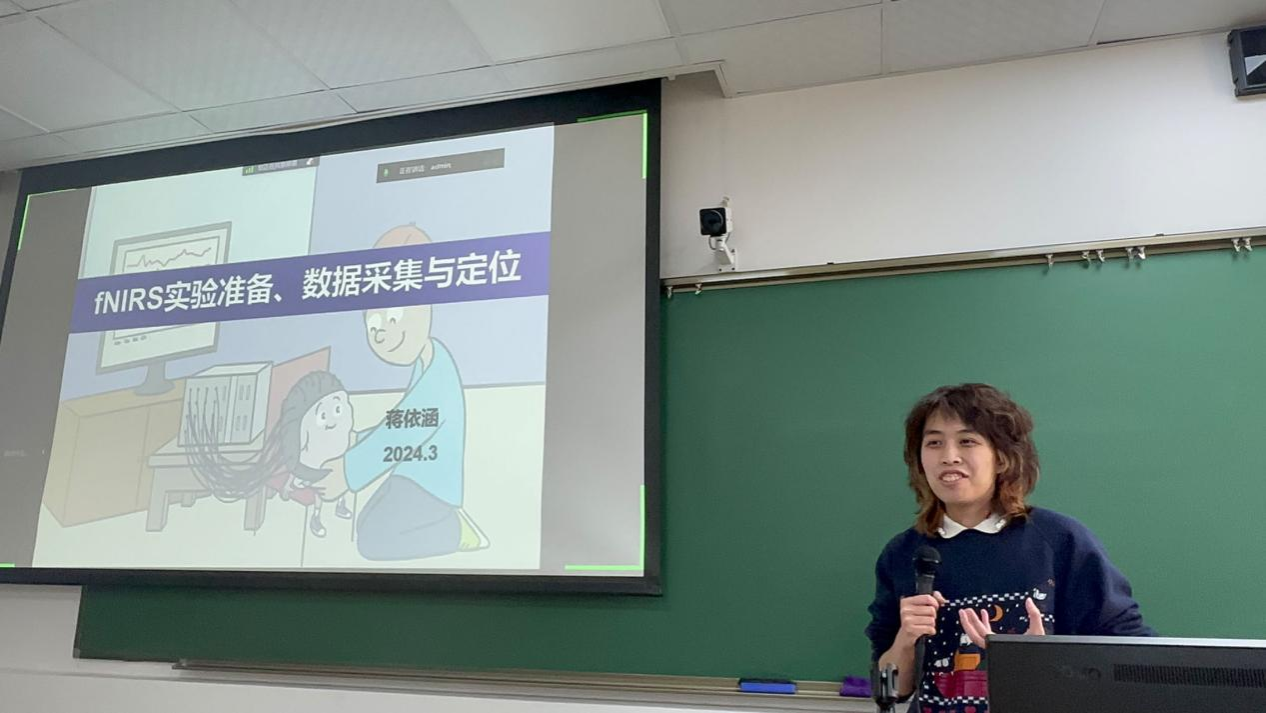
Dr. Jiang Yihan, an assistant researcher at CCSL, explained fNIRS data collection and localization. Drawing on her years of experience in fNIRS research, Dr. Jiang shared with the participants the necessary preparations and insights for data collection. Subsequently, using the LABNIRS system as an example, she introduced the operation interface and process of data collection from participants in detail. Focusing on classic cases of fNIRS technology applied to language processing research, Dr. Jiang guided participants in writing a well-structured and informative fNIRS research paper based on their personal research interests.
On March 31st, the main content of the workshop was the principles and practical techniques of fNIRS data analysis.
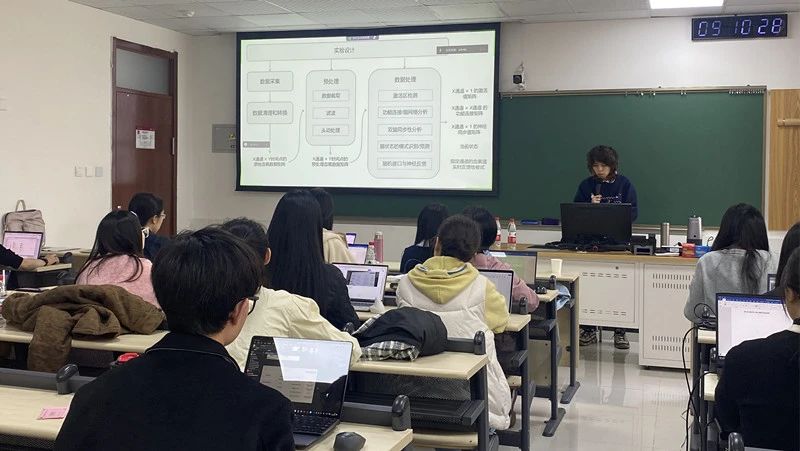
Dr. Jiang Yihan shared her knowledge on the preprocessing and processing of experimental data. Firstly, Dr. Jiang mainly introduced different types of filtering methods, as well as the removal of head movement noise and shallow noise. Considering the linguistic background of many trainees, Dr. Jiang also clarified the statistical concepts in data processing. Dr. Jiang Yihan's courses have laid a solid foundation for trainees in technical operations, helping them better understand and apply the relevant knowledge of fNIRS data analysis.
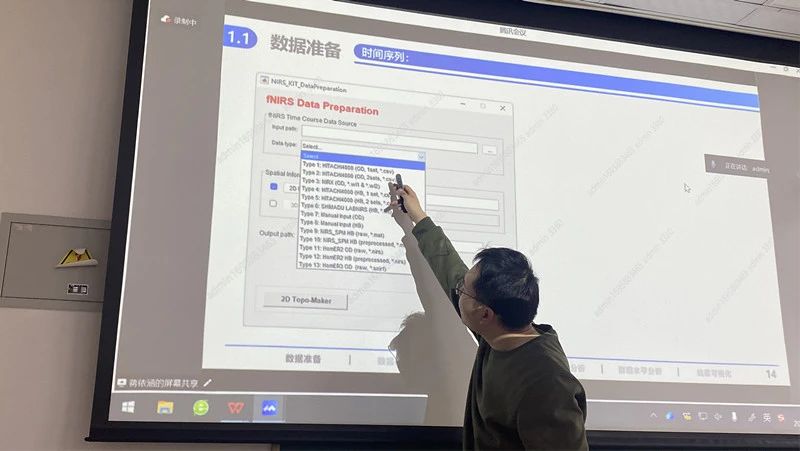

After the accumulation and preparation of early knowledge, Mr. Zhang Zong, a teacher from the Psychology Department of Tianjin Normal University, spent half a day teaching the practical operation based on the NIRS-KIT software. NIRS-KIT is an open-source software developed by the team led by Professor Zhu Chaozhe from Beijing Normal University. The software supports the analysis of task-state and resting-state fNIRS data. Through Mr. Zhang's explanation and practice of the three modules of fNIRS data preparation and preprocessing, individual-level analysis, and group-level analysis and result visualization, trainees can not only solve the difficulties in practical operation, but also lay a solid foundation for subsequent experiments and research work.
In the final session of the workshop, all trainees gathered in the fNIRS laboratory of the Introduction of Intelligence Base under the guidance of Dr. Jiang Yihan and others for hands-on practice. The trainees actively formed groups and took on the dual roles of subjects and experimenters. Through personal practice, they put the classroom content into action. Through cooperation and communication with peers, trainees exercised their team cooperation ability and communication skills in actual battles, laying a good foundation for future scientific experiments and scientific research work.

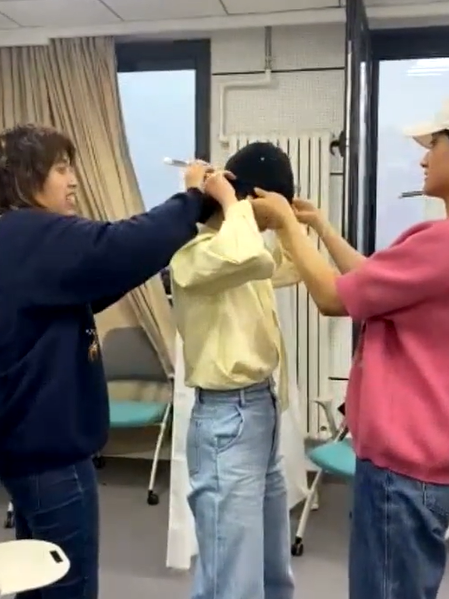
Up to now, the Near-Infrared Spectroscopy Brain Function Imaging Technology (fNIRS) workshop, hosted by the Introduction of Intelligence Base for Linguistic Cognitive Science, has successfully come to an end. The trainees not only experienced the whole process of fNIRS experiments, from data collection to analysis and processing, but also deepened their understanding and application of theoretical knowledge through practice, profoundly grasping the practical application value of fNIRS technology. This workshop provided a valuable learning and exchange platform for the trainees, injecting new vitality into the research and development of cross-disciplinary and cross-field studies using fNIRS technology.